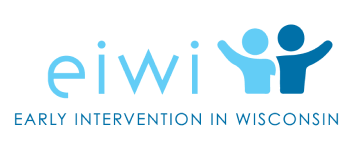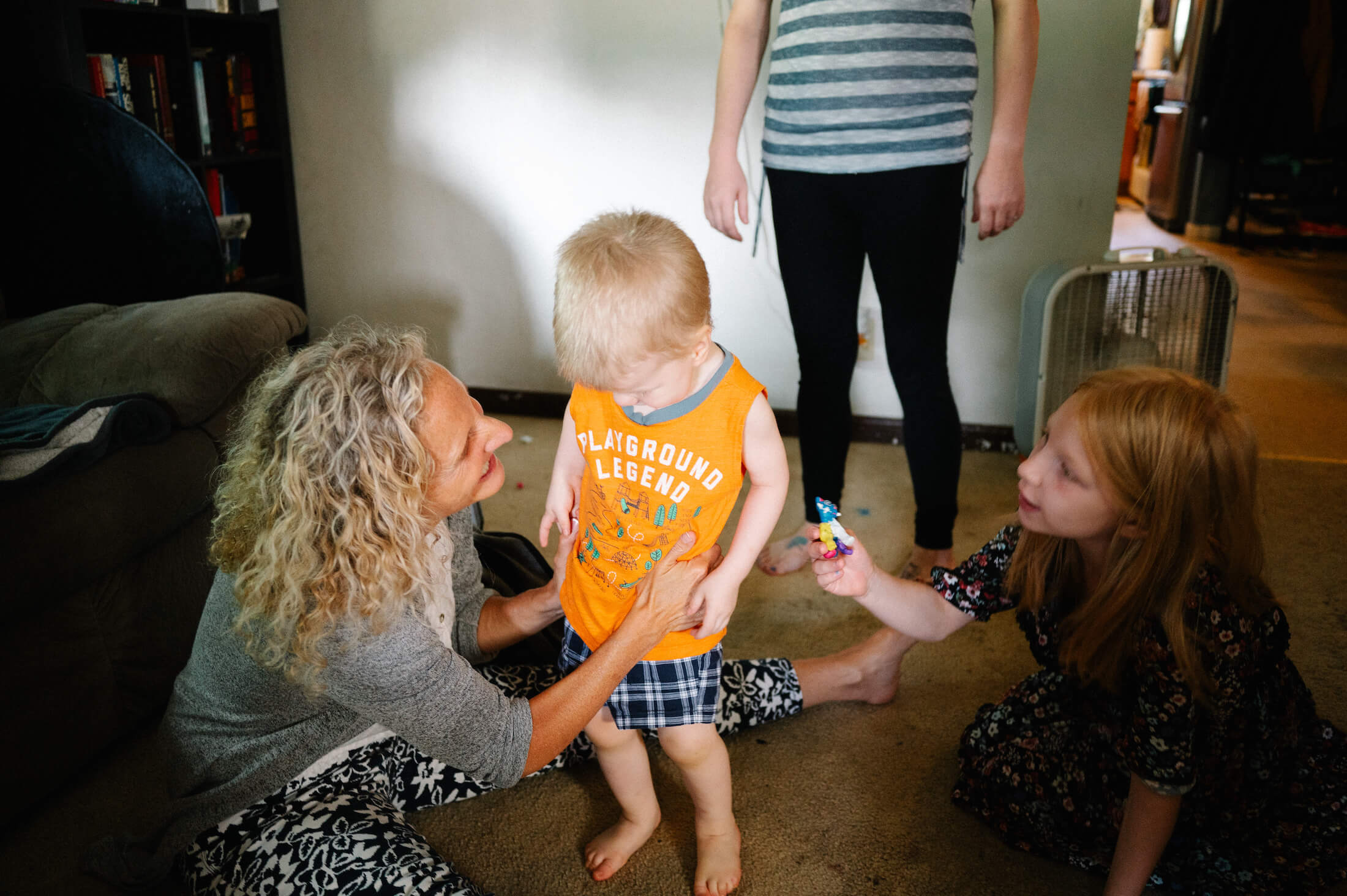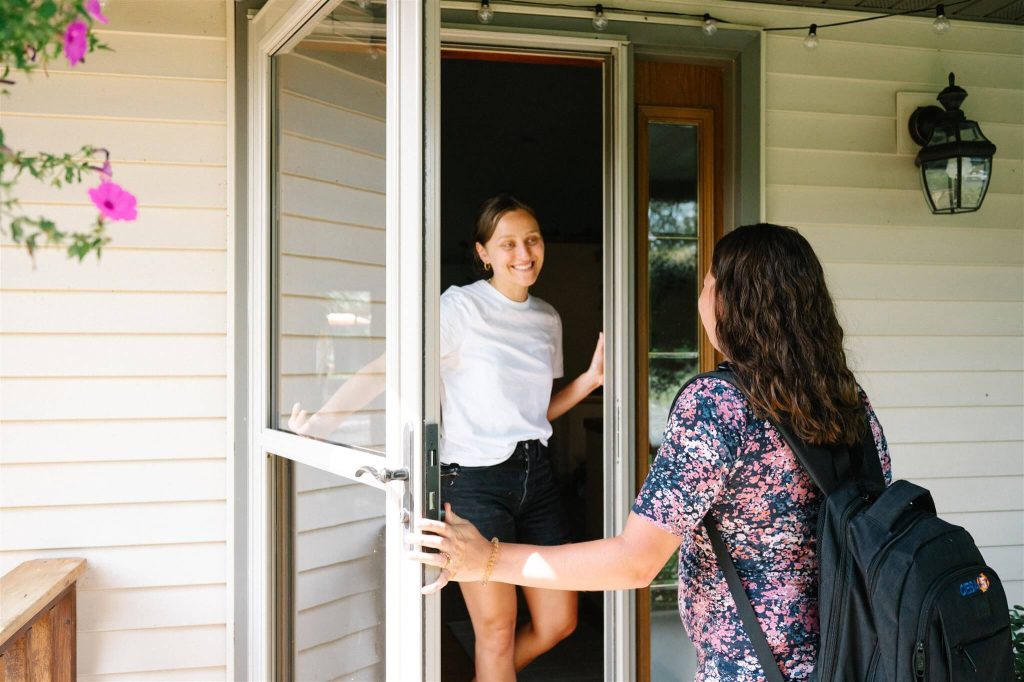Resources to support high-quality evidence-based early intervention practices
The Wisconsin Birth to 3 Program is dedicated to providing services to children and families that are based on foundational principles, validated practices, and best available research. The field of early intervention has established key practices that support quality intervention including support for practice in coaching, teaming and collaboration, and service in natural environments that are based on a family-centered approach.
Homegrown Resources
“How to Talk About” – Conversation Talking Points: These talking points have been developed to help the Birth to 3 Program workforce speak accurately and concisely with families about more difficult or complicated subjects. These documents are not meant to be used as handouts or scripts, but rather a conversation guide.
Evidence-Based Practices Tipsheet Series: This series of Tip Sheets has been developed to support the implementation of evidence-based practices in Wisconsin. Covering coaching, joint visits, team meetings, primary service provider, and natural learning environment practices, these resources will help create a common language and understanding across teams.
Pause and Reflect Book Study Bundle: A RESource developed a collection of materials to support independent or team reading of the book “Pause & Reflect: Your Guide to a Deeper Understanding of Early Intervention Practice” (2021) by Dana Childress. Various Individual or Team Activities: Self-paced
Coaching Book Study Bundle: A RESource developed collection of materials to support independent or team reading of the book “The Early Intervention Coaching Handbook” by Dathan Rush and M’Lisa Shelden Various Individual or Team Activities: Self-paced
Teaming Book Study Bundle: A RESource developed collection of materials to support independent or team reading of the book “The Early Intervention Teaming Handbook” by Dathan Rush and M’Lisa Shelden Various Individual or Team Activities: Self-paced
National Resources
Core Practices
The 7 Key Principles: A list of the foundational principles from the Early Childhood Technical Assistance (ECTA) Center that, through research, were found to be necessary in supporting a system of family-centered services and supports in early intervention. Article – Read time: 5 minutes
DEC Recommended Practices (Family: pgs 10-11, Instruction: pgs 12-13, Environment: pg 14, and Teaming and Collaboration: pg 15): The Division for Early Childhood (DEC) Recommended Practices provide guidance to practitioners to help bridge the gap between research and practice by highlighting those practices that have been shown to result in better outcomes for young children with disabilities, their families, and the personnel who serve them. Practice Guides – Read time per section: 5 minutes each
Coaching
Foundations for Coaching in Early Childhood: Partnering with Parents and Professionals (Video Series): A 7-part video series can be used as a training resource for early childhood coaches, based on the 5 key characteristics of coaching as outlined by Dathan Rush and M’Lisa Shelden. This series was created in conjunction with the Hartford Foundation for Public Giving. Videos can be downloaded or accessed online. Video – Watch time: Each video is about 3 minutes
Coaching Quick Reference Guide: Basic explanation of coaching practices by Dathan Rush and M’Lisa Shelden of the Family and Infant Preschool Program (FIPP) in 2008 that has been foundational in describing the model of coaching implemented in the Wisconsin Birth to 3 Program. This BriefCASE outlines what an individual using a coaching interaction style and the person being coached (i.e., the learner) would each do in relation to the characteristics of the coaching process. Reference Guide – Read time: 5 minutes Additional related BriefCASE resource: Tips and Techniques for Effective Coaching Interactions Article – Read time: 10 minutes
Teaming And Collaboration (Including Primary Provider)
Characteristics of a Primary Coach Approach to Teaming in Early Childhood Programs: This CASEinPoint includes an operational definition of primary coach teaming practices and a description of the characteristics of this approach to teaming. The characteristics of a primary coach approach to teaming practices are included to illustrate how the practices are implemented in ways that build the capacity of a parent or colleague to improve existing abilities, develop new skills, and gain a deeper understanding of evidence-based practices. Article – Read Time: 17 minutes
Communication for Teaming and Collaboration Checklist: This checklist includes examples of verbal and written communication skills for building team relationships needed to work together effectively and gather/convey vital information for providing services and support for children and families. Practice Improvement Tools: Self-paced
Collaboration to Learn and Grow Checklist: This checklist includes steps and actions team members can take to share and gain expertise in order to provide effective interventions that meet the unique needs of individual children and their families. Practice Improvement Tools: Self-paced
Teaming Tidbits: Part of the Universal Curriculum series. Includes online modules that help to contribute to a deeper understanding of quality teaming practices. Modules provide challenges, scenarios, and resources to support quality teaming behaviors introduced in the Foundational Pillars of Early Intervention Module. Total module time: 60 minutes
Natural Environments
What Makes Her Smile? Using Child Interests to Support Learning: In celebration of 50 years of early intervention excellence, the Family Infants and Preschool Program (FIPP) hosted monthly webinars in 2022 for the early intervention community. Each webinar featured a hot topic in early intervention delivered by a past or present FIPP expert. This webinar is presented by Kris Everhart, M.S. CCC-SLP who addresses the importance of child interests in early intervention service delivery. Video – Watch time: 50 minutes
DEC Recommended Practices Instruction Resource Bundle: The Instruction Resource Bundle identifies existing resources that would support practitioners in addressing practical dilemmas using the Division of Early Childhood Recommended Practices (DEC RPs) under the Instruction topic area. Additional Instruction topic materials are included in the bundle. This resource is available for FREE in the DEC bookstore. Varied
Embedded Instructional Practices Checklist: This checklist includes the characteristics of embedded instructional practices that can be used by a practitioner or parent to promote a child’s use of targeted, functional behavior in the contexts of home, community, or classroom activities. Practice Improvement Tools: Self-paced
Naturalistic Instructional Practices Checklist: This checklist includes the characteristics of naturalistic instructional practices that can be used by a practitioner or parent to support and strengthen a child’s learning and development while a child is engaged in everyday home, community, or classroom activities. Practice Improvement Tools: Self-paced
Family-Centered Practices
Family-Centered Practices: Where They Came From and How They Need to Change: In celebration of 50 years of early intervention excellence, the Family Infants and Preschool Program (FIPP) hosted monthly webinars in 2022 for the early intervention community. Each webinar featured a hot topic in early intervention delivered by a past or present FIPP expert. This webinar was delivered by Carol Trivette to share the history of family-centered practices and to highlight where early intervention should be headed in these practices. Video – Watch time: 53 minutes
Families Are Full Team Members Checklist: This checklist includes steps and actions teams can take to ensure that families are included as full team members and are valued as experts who are considered vital to effective team functioning. Practice Improvement Tools: Self-paced
Family-Centered Practices Checklist: This checklist includes the kinds of practitioner help-giving behavior that are indicators for interacting with and treating parents and other family members in a family-centered manner. Practice Improvement Tools: Self-paced
Informed Family Decision-Making Checklist: This checklist includes the kinds of practitioner help-giving practices that can be used to engage parents in informed decision-making in ways that are responsive to family concerns and priorities. Practice Improvement Tools: Self-paced
Family Engagement Practices Checklist: This checklist includes the kinds of practitioner help-giving practices that can be used to actively engage parents and other family members in obtaining family-identified resources and supports or actively engaging parents and other family members in the use of other types of intervention practices. Practice Improvement Tools: Self-paced
Family Capacity Building Practices Checklist: This checklist includes practices for engaging parents and other family members in using child-level interventions to promote child learning and development in ways that strengthen parenting confidence and competence. Practice Improvement Tools: Self-paced
Supporting children in families with complex needs: Nine tips for practitioners who feel out of their depth: A practice paper from Emerging Minds that outlines ways to develop confidence in supporting children in families with complex needs. Article – Read Time: 20 minutes




